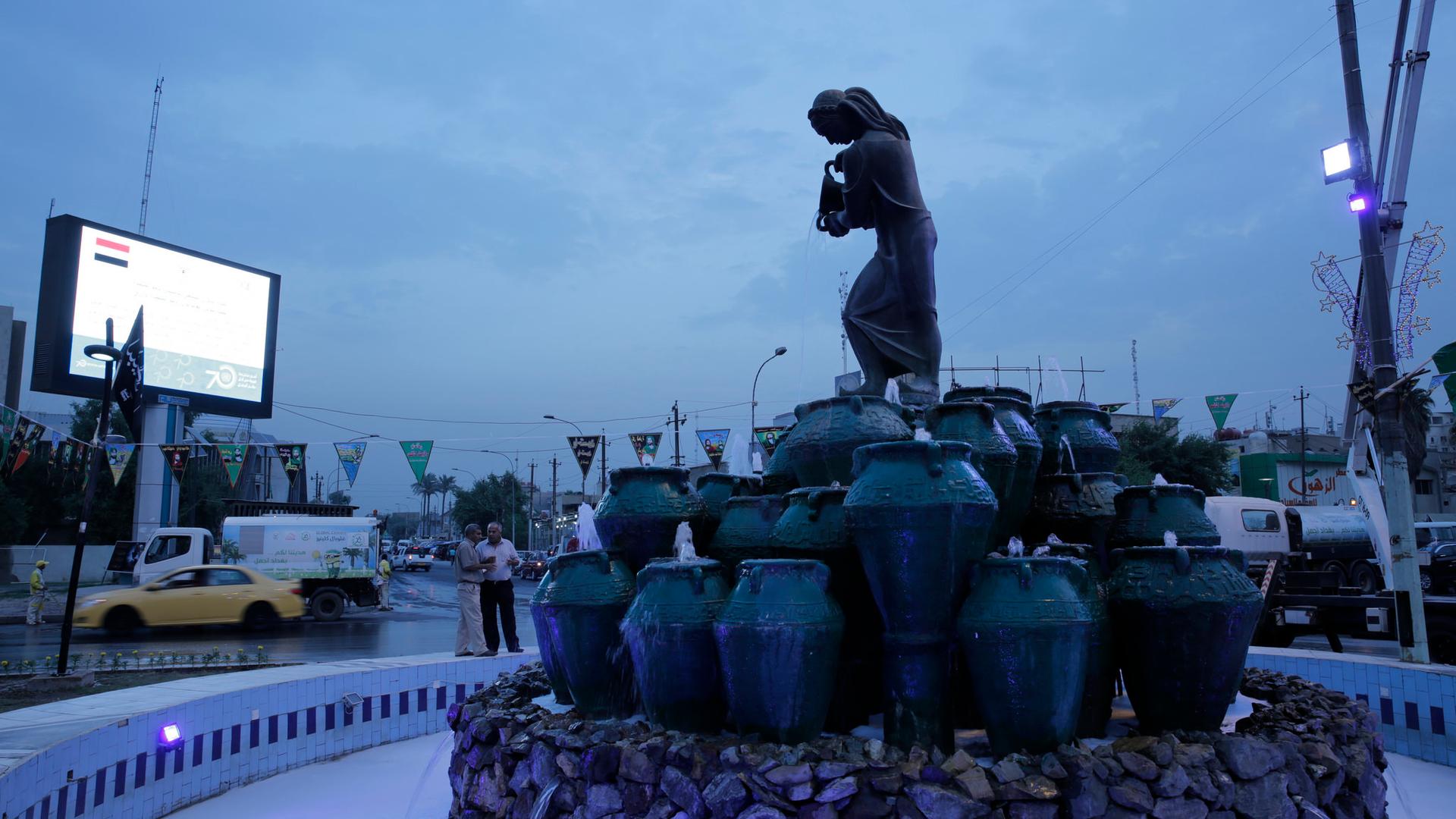2017 feels almost as strange as this writer’s dystopian vision of Iraq in 2103
Iraqi fiction writer Anoud recently moved to New York.
Timing is everything.
Anoud (her pen name) arrived in the United States in late December 2016. She was engaged to be married to an American citizen, so entered the US on a fiancée visa.
Within a month, Donald Trump was president, and days after that he issued his seven-country immigration and refugee ban. One of the countries was Iraq, Anoud's place of birth.
"It feels very strange," says the writer. Almost as strange as her dystopian story "Kahramana," which imagines Iraq in the year 2103 as a country split into zones. One, the Islamic Empire of Wadi Hashish, is run by a bumbling, extremist narcissist with hints of both Islamic State and Donald Trump. Another zone, Baghdadistan, is overseen by NATO. All sides, including humanitarian groups, play fast and loose with the facts. Would-be refugee Kahramana, whose name recalls the slave girl in "Ali Baba and the Forty Thieves," is no saint herself.

Anoud writes in English, though she spends much of her time thinking in Arabic. Her bilingualism stems from a childhood spent in England and Ireland as well as Iraq.
I knew I had to visit Anoud in her New York home for The World in Words podcast. There, she told me of her upbringing — at one stage she believed she was Irish — and her blossoming as a storyteller, first in Arabic, then in English. She also told me of research she did for Western news organizations about extremist groups, predominantly ISIS. Her conclusions are chilling.
"When you listen to the Trump administration and the people who support Trump, some of them are specifically picking on the rhetoric that says, 'Ban Muslims, ban immigrants, all Arabs are crazy,'" she says. "It is the exact same way of thinking of someone who supports ISIS, [who]says, 'All Americans are bad; you can't speak English, you can't be a Westerner or you're an infidel.'"
Dark it may sound, but in her fiction, Anoud transforms observations like these into vivid satirical episodes, always with a sting in the tail.
Podcast contents

1:40 What the name Anoud means.
2:20 Coming to America.
4:50 "Take me back home, I'm Irish!"
5:20 A gift from a teacher.
7:40 Falling in love with Baghdad.
9:32 "Write in English! Talk to them!"
10:00 Arabic vs English.
12:08 An excerpt from "Kahramana."
15:40 "You're Iraqi, how cute!"
16:50 "I'm obsessed with ISIS."
17:30 ISIS and some Trump supporters: a shared intolerance.
19:50 "In Arabic, the adjectives automatically creep in."
20:30 Check out Anoud's story in "Iraq + 100," stories by Iraqi writers who imagine Iraq 100 years after the 2003 US invasion and fall of Saddam Hussein.
You can follow The World in Words stories on Facebook or subscribe to the podcast on iTunes.
.jpg&w=1920&q=75)